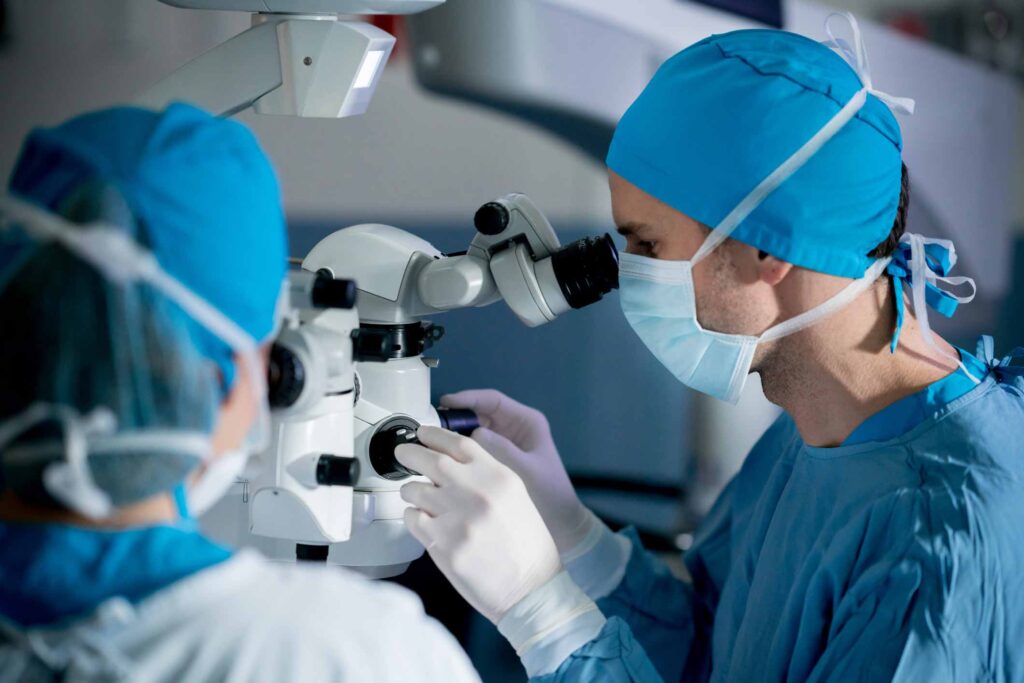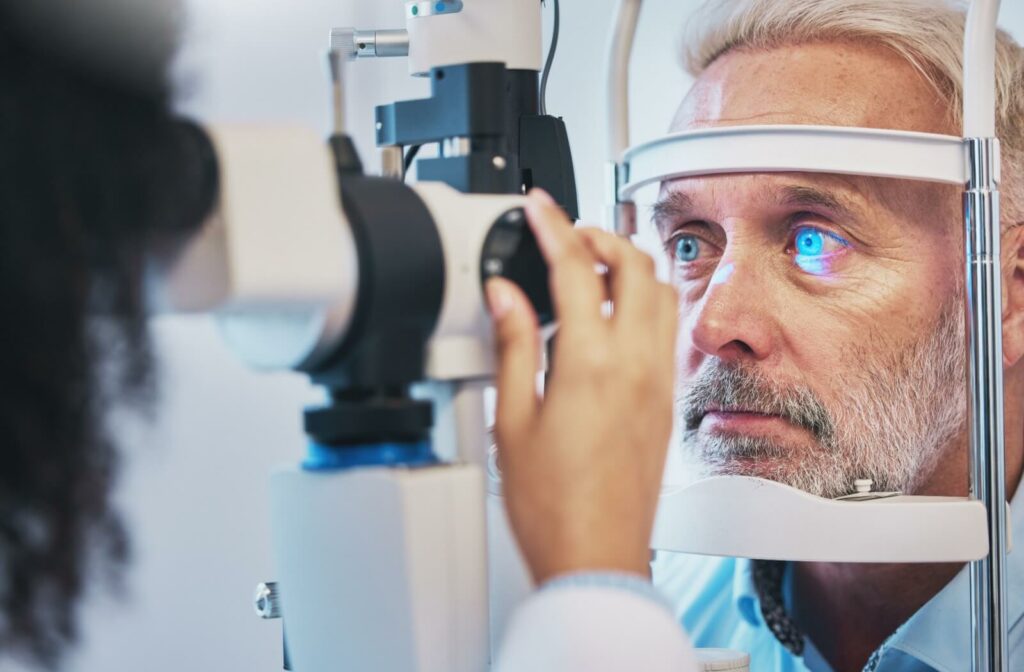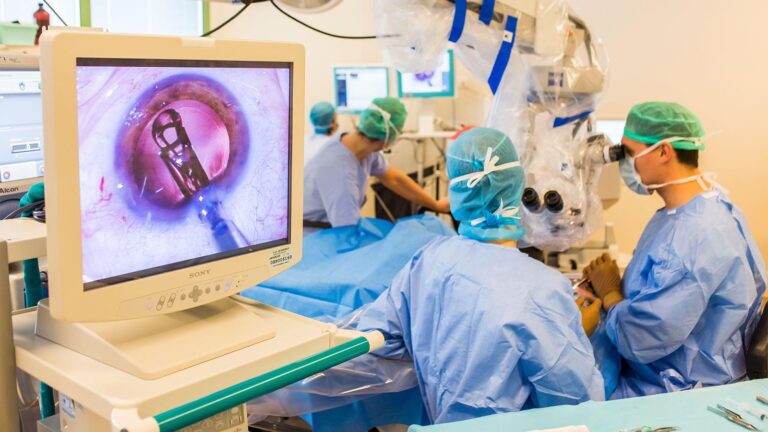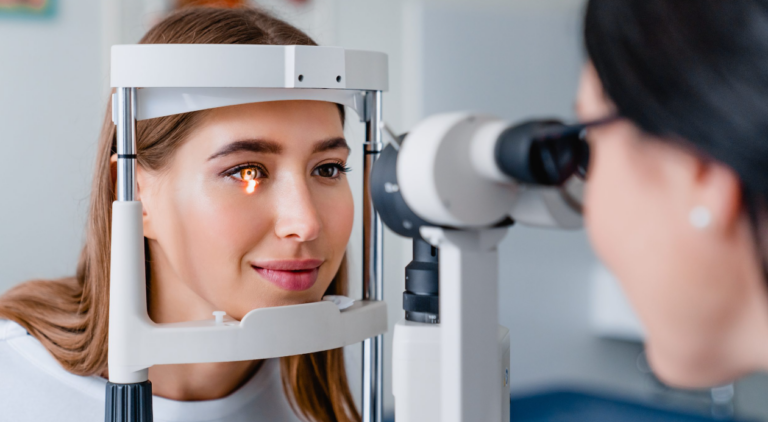Introduction
Imagine waking up and seeing the world clearly — no glasses, no contact lenses, just crystal-clear vision. That’s the magic of laser eye surgery. Yet, despite its life-changing benefits, many people hesitate due to myths and misconceptions. Others who’ve taken the leap wonder what to expect in the days following their procedure.
In this article, we’ll debunk the most common laser eye surgery myths and guide you through what life looks like in the first 30 days after surgery — backed by expert insights and real patient experiences.
Section 1: What Exactly Is Laser Eye Surgery?
Laser eye surgery reshapes the cornea — the clear front surface of your eye — to correct vision problems like nearsightedness, farsightedness, and astigmatism. The goal is simple: to improve how light focuses on the retina for clearer vision.
The three main types are:
- LASIK (Laser-Assisted In Situ Keratomileusis): The surgeon creates a thin corneal flap, reshapes the underlying tissue with a laser, and repositions the flap.
- PRK (Photorefractive Keratectomy): Ideal for people with thin corneas. Instead of making a flap, the outer layer of the cornea is removed and regrows naturally.
- SMILE (Small Incision Lenticule Extraction): A newer, minimally invasive technique where a tiny lens-shaped piece of tissue is removed through a small incision.
You may qualify if you’re over 18, have stable vision for at least a year, and are in good eye health.
Section 2: The Myths That Need to Be Left Behind
Despite decades of success, misinformation about laser eye treatment still circulates. Let’s separate facts from fiction.
Myth 1: Laser Eye Surgery Is Painful
Fact: It’s virtually painless. Surgeons use numbing eye drops before the procedure. You might feel mild pressure, but no sharp pain. Most patients are surprised by how quick and comfortable it is.
Myth 2: You Can Go Blind
Fact: This is one of the biggest misconceptions. The risk of severe complications is extremely low — less than 0.01%. Modern LASIK eye surgery uses advanced lasers guided by computers, minimizing risks even further.
Myth 3: The Results Don’t Last
Fact: Laser eye surgery permanently reshapes your cornea. While natural aging may affect near vision later in life, most patients enjoy decades of clear sight after a single procedure.
Myth 4: Recovery Takes Weeks
Fact: Recovery is faster than most expect. Many patients return to work within 24–48 hours after LASIK or SMILE. PRK may take a few extra days since the surface of the cornea needs to heal.
Myth 5: Everyone Gets the Same Results
Fact: Results vary based on prescription strength, age, and corneal health. Some patients reach 20/20 vision, while others achieve a significant improvement that reduces dependence on glasses.
Section 3: Life After Laser Eye Surgery — The First 30 Days
Here’s what you can expect step-by-step after your procedure.

Day 1–3: The Adjustment Period
You’ll likely notice clearer vision immediately, though it may feel slightly hazy or watery at first. Mild dryness or itching is normal. Avoid rubbing your eyes, and use prescribed eye drops regularly. Most patients can see well enough to resume normal activities after a day or two.
Day 4–7: Stabilizing Vision
By the end of the first week, vision usually sharpens dramatically. Colors may appear more vivid, and nighttime glare starts to fade. Continue avoiding makeup, swimming, and direct contact with water.
Week 2–4: Fine-Tuning and Comfort
Your eyes continue healing and adapting. Some people notice fluctuations — crystal clear one day, slightly blurry the next — which is completely normal. Keep using lubricating drops, stay hydrated, and protect your eyes from bright sunlight.
End of Month 1: Settling Into Clarity
By 30 days, your eyes are mostly healed. Vision is stable, and most patients enjoy 20/20 or better results. Routine follow-up appointments ensure everything is progressing perfectly.
Section 4: Real Patient Experiences
- Emma, 28 (LASIK): “I was nervous before the surgery, but it was over in 15 minutes. I could read signs that night! By day three, I was back at work.”
- David, 44 (PRK): “Recovery was slower, but worth it. My vision was perfect after two weeks — and I love not dealing with contacts anymore.”
- Sarah, 35 (SMILE): “I was amazed by how painless it was. I went shopping the next day! My only issue was remembering to use my eye drops.”
These stories reflect one truth: laser eye surgery changes lives — safely, effectively, and quickly.
Section 5: Common Sensations and How Doctors Manage Them
Mild side effects like dryness, glare, or halos at night can occur temporarily. Doctors recommend:
- Using preservative-free eye drops for moisture.
- Wearing sunglasses to reduce sensitivity to light.
- Getting proper rest and avoiding digital screens right after surgery.
Most of these sensations fade within a few weeks as the cornea fully heals.
Section 6: Long-Term Benefits
Once recovery is complete, patients often say it’s one of the best decisions they’ve ever made. Benefits include:
- Sharp, clear vision day and night.
- Freedom from glasses and contact lenses.
- Improved confidence and lifestyle flexibility.
- Long-term cost savings compared to prescription eyewear.
Laser eye surgery doesn’t just fix vision — it restores a sense of independence.
Conclusion
The truth is, laser eye surgery is one of the safest, fastest, and most effective ways to achieve lasting vision correction. Don’t let myths hold you back from the clarity you deserve. With expert care and proper recovery, you can look forward to seeing life in stunning detail — one day at a time.
If you’re considering the procedure, consult a qualified ophthalmologist to discuss your options. Clear vision could be closer than you think.
FAQS
The most common myth is that it’s painful or unsafe. In reality, the procedure is nearly painless thanks to numbing drops, and complications are rare. Modern technology ensures precision and quick recovery with minimal discomfort.
Most patients can resume work within 1–2 days after LASIK or SMILE, while PRK patients might need up to 5 days. However, it’s important to follow your doctor’s advice and avoid strenuous activities until cleared.
Avoid swimming, rubbing your eyes, and applying eye makeup during the first few weeks. Also, limit screen time initially and wear sunglasses outdoors to protect your healing eyes from bright light and dust.
Yes. Laser eye surgery reshapes the cornea permanently, and results typically last for decades. Natural age-related changes like presbyopia may occur later in life but are not caused by the surgery.



